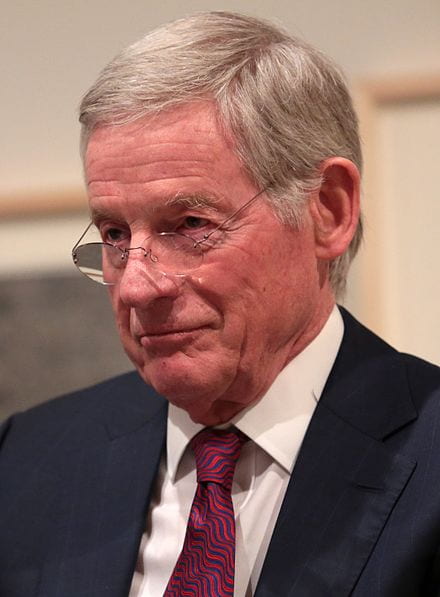Belfer Case Study Room (S020), CGIS South, 1730 Cambridge St., Cambridge, MA 02138

You’re invited to join us for a celebration of Harvey Mansfield’s remarkable Harvard career in recognition of his recent retirement from teaching.
Hosted by the Government Department, colleagues and former students have been invited to discuss and reflect on Harvey’s writings and scholarship in two panels. This is not a “new paper” conference, but a celebration, one with intellectual content and discourse that will be cogent, if not comprehensive.
This event is free, but registration is requested. REGISTER HERE.
Coverage of Prof. Mansfield’s career and retirement in the Harvard Crimson and Harvard Magazine.
EVENT SCHEDULE
9:00AM
Coffee welcome
9:15-10:30AM
Mansfield on Politics, Modernity, and Institutions
Panelists:
Richard Tuck (Harvard)
James Hankins (Harvard)
Cliff Orwin (University of Toronto)
Susan Shell (Boston College)
Rita Kogazon (University of Houston)
Moderator: Eric Nelson (Harvard)
11:00AM-12:15PM
Mansfield on Democracy in America and the Social Sciences
Panelists:
Steve Ansolabehere (Harvard)
Bryan Garsten (Yale)
Shep Melnick (Boston College)
Russ Muirhead (Dartmouth)
Michael Sandel (Harvard)
Moderator: Bill Kristol
12:30PM
Lunch*
*This will be a light lunch of sandwiches, water/sodas, and cookies; it may not accommodate every dietary restriction.
About Harvey Mansfield
William R. Kenan, Jr. Research Professor of Government
Harvey Mansfield: “My long life in the Department has been devoted to teaching the political science of the best regime: originating in Plato and Aristotle and reformed by the modern political science of Machiavelli and liberal constitutionalism. The best resources of political science are its great books, where doctrines we take for granted are questioned. My books have been on Machiavelli, executive power, party government, American constitutionalism, Burke, Tocqueville, manliness, plus reliable translations of Machiavelli and Tocqueville. Though known as conservative, I would say my gods are higher in the sky than conservatism.”
Mansfield was chairman of the Government Department from 1973 to 1977, has held Guggenheim and NEH Fellowships, and has been a Fellow at the National Humanities Center. He won the Joseph R. Levenson Award for his teaching at Harvard, received the Sidney Hook Memorial Award from the National Association of Scholars, and in 2004 accepted a National Humanities Medal from the President. In 2007, he delivered the National Endowment for the Humanities’ Jefferson Lecture. He has hardly left Harvard since his first arrival in 1949, and has been on the faculty since 1962.
For more than forty years, Harvey Mansfield has been writing and teaching about political philosophy. His commentary “demonstrates the virtues that should guide scholars of the humanities,” writes Mark Blitz, a former student. Blitz explains those virtues as “patient exploration of the intention of a superior author, attention to other scholars and generosity to trailblazing teachers, brilliance and wit, and an eye toward what can improve us here and now.”
Mansfield examines both contemporary politics and their historical origins. His fourteen books delve into the words of past thinkers such as Edmund Burke and Machiavelli, where he finds answers to puzzles such as why we believe today that political parties are respectable or desirable. The “Settlement of 1688,” Mansfield writes, “…resolved the religious issue by demoting it. . . . Party government required such a separation, because it was the operation of the religious issue in politics which caused great parties.”
Mansfield credits Machiavelli as the mastermind behind modernity. “I think he was responsible for the original insight behind the American presidency,” says Mansfield. “Our country is the first republic that had strong executive power, as previously it was thought that executive power was contrary to republican principles. But we managed to combine this princely power with the people’s authority.”
Mansfield’s first book, Statesmanship and Party Government: A Study of Burke and Bolingbroke, came out in 1965. Since then he has published thirteen more books including three translations of Machiavelli and a translation of Alexis de Tocqueville’s Democracy in America, which he co-translated with his late wife Delba Winthrop. Articles and political analysis by Mansfield frequently appear in periodicals such as the Weekly Standard, the Wall Street Journal, the New Republic, the National Review, and the Times Literary Supplement.
Mansfield’s numerous awards include a Guggenheim Fellowship and a National Humanities Medal. He has served as a member of the Council of the American Political Science Association and the National Council on the Humanities, as a fellow of the National Humanities Center, and as president of the New England Historical Association.
